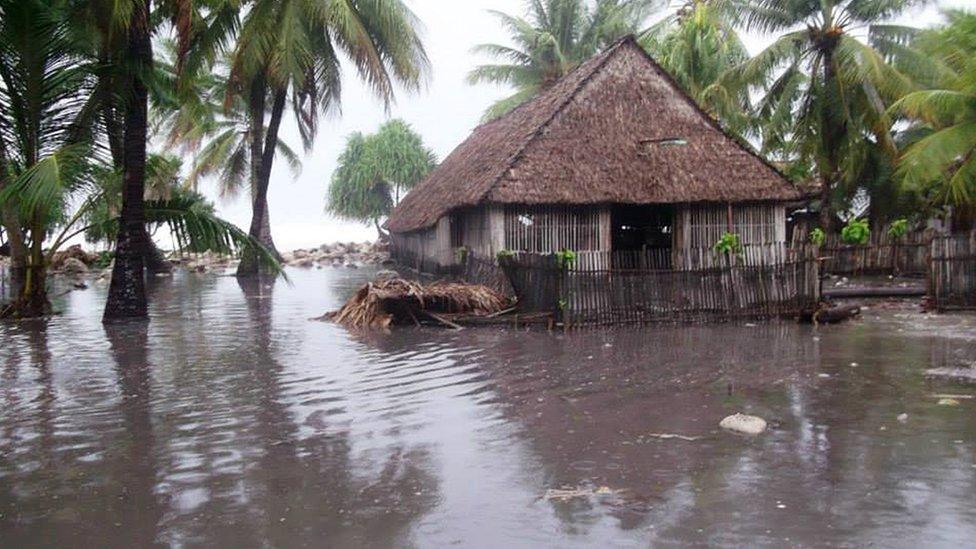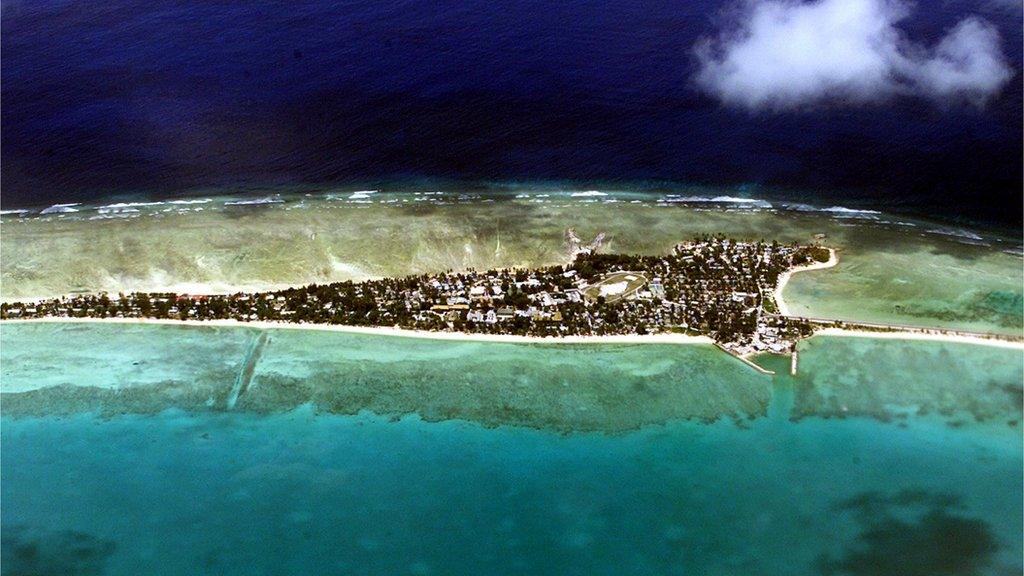New Zealand deports climate change asylum seeker to Kiribati
- Published

Kiribati was among several low-lying island nations flooded by Cyclone Pam in March this year
New Zealand has deported a Kiribati man who lost a legal battle to be the first person granted refugee status on the grounds of climate change alone.
Ioane Teitiota, 39, has argued that rising sea levels in his homeland meant his family would not be safe there.
His lawyer, Michael Kidd, told the BBC: "He's very disappointed obviously, he wants to be back in New Zealand."
Kiribati is among several low-lying Pacific nations threatened by climate change-linked problems.
These include storm surges, flooding and water contamination.
Mr Teitiota's wife and their three New Zealand-born children also face deportation and are likely to leave next week, reported local media.
"They said we are overstayers but we are not. We are trying to find a better life for the kids," his wife Angua Erika told Radio New Zealand., external
Mr Teitiota's children are not entitled to New Zealand citizenship.
'Passive persecution'
Mr Teitiota had been in New Zealand since 2007 but overstayed his visa and was caught in 2011.
His deportation on Wednesday night follows a failed appeal against a New Zealand high court decision that he could not be a refugee as he was not being persecuted. The United Nations describes a refugee as someone who faces persecution at home.
Mr Teitiota's appeal was dismissed in July. He was taken into police custody last week ahead of his deportation.
Mr Kidd said that Mr Teitiota was planning to appeal for help from the United Nations's refugee agency.
His lawyers have argued in court that he and his family would suffer harm if forced to return to Kiribati because of the combined pressures of over-population and rising sea levels, and that he would be "persecuted passively" by the circumstances there.
Prime Minister John Key said this week that Mr Teitiota had overstayed and that his argument lacked credibility.
- Published26 November 2013
